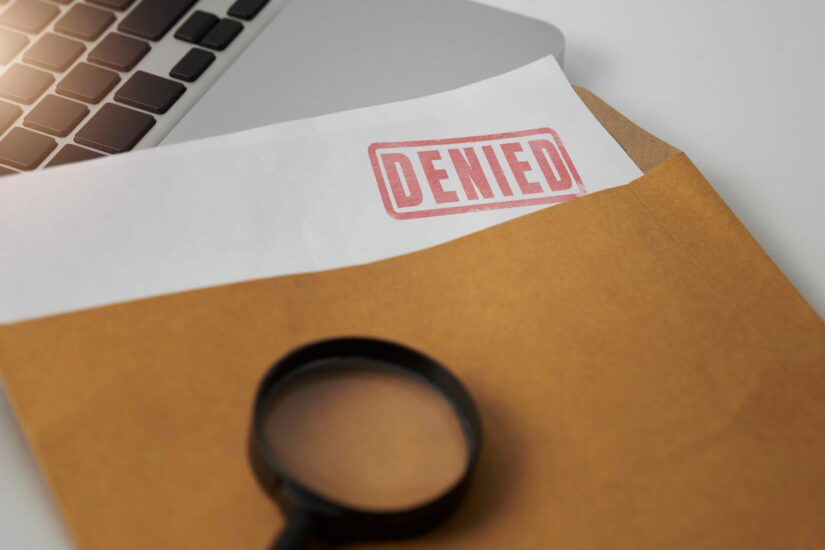
Whether you suffered a car accident, medical emergency, or damage to your property, getting timely assistance from an insurance company is important. However, if there are delays in your claim, it can add to the stress and anxiety of having to deal with the aftermath of an accident or emergency.
How long do insurance companies have to pay a claim in Georgia? Is there a maximum time limit that insurance companies have to respond to the claim? Unfortunately, there’s no simple answer to this question. It depends on many factors including the complexity of the case and factors influencing the payout timeline.
Let’s dive into the claims process to explore what factors influence the time it takes for an insurance company to process and pay out a claim, and what you can do to expedite the process.
Understanding the Claim Process in Georgia
Before we consider the timeline for an insurance claim, let us understand how the claims process works. For most types of claims, including car accident claims, the process formally starts with the initial filing of a claim. However, it may take you some time from the date of the accident to when you file a claim.
You may need this time to gather evidence, seek medical attention, assess damages, and consult with professionals like attorneys or contractors. This pre-filing period, while not formally part of the insurance company’s processing time, may add time to the overall timeline.
Once you have filed your claim, you will likely receive an acknowledgment from the insurance provider. They might assign you a reference number for you to track the process of the claim, and make further communications with the insurer.
At this stage, an insurance adjuster may be assigned to your case to assess the validity of your claim and the extent of the damages or losses. The adjuster might contact you to gather more information. They may also seek to inspect the damaged property or conduct interviews with relevant parties.
After the initial assessment is complete, the insurance provider may ask you to submit additional documentation that supports your claim. This can include proof of loss, repair estimates, medical bills, police reports, or other types of relevant documentation for the incident. This is most likely in cases that involve significant financial losses or complex circumstances such as wrongful death or severe injuries.
The type of investigation for the claim or documentation requires various claim types. For example, a Georgia car accident claim may require documents related to the damage photos, while a health insurance claim investigation may be more focused on medical records and bills.
With the necessary documentation in hand, the insurance company will review and verify the details of your claim. This review process involves cross-referencing your submitted evidence with policy terms and conditions to determine coverage eligibility. The insurance company can accept or deny your claim. They can also negotiate with you.
In many cases, the insurance company starts by offering an unreasonably low settlement amount, so you shouldn’t accept any settlement without consultation with your attorney. If the insurance company denies your claim, you should provide some reasons for the denial. You have the right to appeal the decision or seek legal recourse. The claims process can include additional steps depending on the nature of your application.

Time Limits For Insurance Payouts
One of the most pressing concerns for anyone filing an insurance claim is how long it will take to receive payment. After all, policyholders pay insurance premiums to have the protection of insurance coverage, and it’s their right to receive not only full and fair payment but also to receive it promptly. Several elements come into play, including industry standards, the specifics of the claim, and the regulations in the policyholder’s state.
Industry Standards On Claim Settlement Timeframes
Industry standards can provide a general guide on what to expect for claim settlement timelines. While these standards aren’t legally binding, they can help claimants manage their expectations, and also take action if they feel their claim is being unnecessarily delayed.
A common industry standard is for insurers to acknowledge receipt of a claim within 14 days of receiving notification. This acknowledgment should confirm that the claim has been received and provide a claim number for future reference.
Generally, insurance companies strive to settle straightforward claims within a reasonable timeframe, often cited as 30 to 60 days after receiving all necessary documentation. They wouldn’t prefer to build a backlog of claims and would like to get them processed as soon as possible.
For straightforward claims, such as those involving minor auto accidents or small home repairs, the claims process is simpler, and such claims often get processed in a few weeks. However, complex tasks can take longer.
Factors Affecting The Payout Timeline
Numerous factors can influence the time it takes for an insurance company to process and pay a claim in Georgia. As you would expect, a key factor is the complexity of the claim. A claim with a simple “fender-bender” collision will take less time compared to a claim that involves a totaled vehicle. Cases that have disputed liability or significant injuries can take longer to resolve.
Similarly, claims related to medical treatments or large-scale property damage may involve detailed investigations and expert consultations that can add to the insurance claim payment timeframe.
The timeline often depends on the type of claim. Many states have “prompt payment laws” for healthcare insurance claims. These laws mandate that insurers must process and pay “clean claims”—claims with no errors or omissions—within a specific timeframe, often around 30 days.
Other types of claims can take longer. For example, disability claims can be more complex and time-consuming due to the need for ongoing medical evaluations and assessments to determine the extent and duration of the disability.
The efficiency and internal process of the insurance company can also play a role. Some insurance companies have more streamlined processes and use advanced technologies to ensure faster processing. However, many insurance companies operate with outdated methods that slow down the process.
Seasonality is another factor that can impact the timeline of how soon you can receive your insurance payments. Depending on the type of claim you file, certain times of the year could be peak season with a high volume of claims. For example, during the hurricane season in Florida, you can expect homeowners insurance claims to rise dramatically. Insurance companies may become overwhelmed with the sheer number of claims they need to process.
Extender factors, such as those not controlled by the insurance company, add extra time to the processing. For example, natural disasters or global events cause widespread disruptions and resource constraints leading to delays in handling the claims.
Unfortunately, some insurance companies delay the process as a tactic to minimize their payout. Such bad faith tactics are aimed at frustrating the claimant into accepting an unreasonably low payment.
Common delaying tactics include asking for unnecessary documents and repeatedly requesting the same information, despite having already received it. Insurers might also frequently change the claims adjuster handling the case or fail to communicate adequately, leaving claimants in a state of uncertainty.

State-Specific Regulations And Laws
While industry standards offer a general idea of how claims should be handled, the real rulebook is written at the state level. State-specific regulations and laws can impact the timeline of how soon you can receive payments. The states often have guidelines on how insurance companies should acknowledge claims, conduct investigations, and make payments.
For example, in Georgia, insurance companies are required by law to acknowledge receipt of a claim within 15 days, unless the claim is paid within that time frame. For motor vehicle policies, insurers must confirm or deny liability within 15 days after receiving a completed proof of loss.
In contrast, Colorado has different regulations. It requires insurance carriers to make a decision to pay or deny a claim within 60 days of receipt of a valid and complete claim unless a reasonable dispute exists.
As each state could have laws and regulations for how insurance claims are processed, this makes it even more important to have an attorney involved in the process. They can guide you on how the laws will impact your case and guide you to the best legal course of action.
Legal Rights of Policyholders
Understanding your rights as a policyholder is vital not only for ensuring full and fair payment from the insurance company but also for preventing unnecessary delays in the process.
What to Do If Payment Is Delayed
At the Law Offices of Jorge Luis Flores, L.L.C., we understand how frustrating it can be to face delays in getting your payment. While some delays may be legitimate due to complex investigations or high claim volumes, unreasonable delays can signal a problem. If you have an attorney on your side, you can have them assess the situation to guide you on the next steps.
Generally, the first step is to understand why the payment is delayed. Contact your claims adjuster or customer service, politely inquiring about the delay and requesting a timeline for payment. Make sure to keep records of all communications. You may also want to review your insurance policy to determine if your claims meet the terms and conditions set by the insurance company.
An auto insurance company may have separate terms and conditions compared to other types of insurance policies. After a car wreck, consulting a personal injury lawyer is crucial to navigating car accident lawsuits and securing compensation for medical expenses. An experienced car accident lawyer can help you deal with car insurance claims and ensure a smooth legal process.
Once you hear back from the insurance company, you should have a better understanding of why the claim is delayed. However, if you’re not satisfied with the response, you can escalate the issue to a manager or supervisor. It’s your right as a policyholder to get an update on your claim.
If you don’t get a response because you believe the insurance company is delaying the payment without any justification, you can take action against the insurance provider for violating your rights.

Legal Recourse For Denied Claims
Having a denied claim can be stressful, but it also offers an opportunity for you to understand what caused the insurance company to deny your claim and work towards resolving those issues through a well-structured appeal process.
As a policyholder, you have the right to challenge the decision of the insurance company. However, you will need evidence to support your claim. Gather evidence such as medical records, expert opinions, repair estimates, or any other relevant documentation that strengthens your case. Most insurance policies include an internal appeals process.
Follow the provided instructions to formally appeal the denial, submitting a written appeal along with any additional evidence. Be sure to adhere to any insurance claim payment timeframe or procedural requirements outlined in your policy. The appeals process can be challenging, and you may need assistance from a skilled attorney who has experience in appealing against denied insurance claims.
If you have exhausted all your efforts in appealing against the decision, you can consider filing a lawsuit against the insurer. This legal recourse should only be taken as a last resort as they can add more time to the overall process. While taking this route may add more time, you may be able to recover the payment that you deserve.
If you can prove that the insurer acted in “bad faith” by unreasonably denying or delaying your claim, you may be entitled to recover additional damages beyond the original claim amount. Bad faith practices can include misrepresenting policy language, failing to conduct a thorough investigation, or offering an unreasonably low settlement.
Role Of An Attorney
An experienced attorney can play a vital role in ensuring you get your insurance payment on time. While many insurance claims are resolved smoothly without unnecessary delays or bad faith tactics, you never know when you might encounter such a situation. It’s best to consult with an attorney who specializes in insurance law and has a deep understanding of state regulations and other laws that apply to such cases.
Reviewing Insurance Agreement
The first step an attorney will take is to thoroughly review your insurance agreement. This involves examining the terms and conditions, coverage limits, exclusions, and any other relevant policy clauses or provisions.
By understanding the nuances of your policy, the attorney can identify any potential areas of dispute and ensure that your claim complies with the policy’s requirements. This detailed review helps in building a strong case and lays the groundwork for successful negotiations or legal action if necessary.
Gathering Evidence
When you have an attorney on your side, you get legal guidance and representation through each step of the process, including gathering evidence. An attorney can obtain evidence that you wouldn’t be able to obtain on your own.
This includes expert testimony such as medical experts and accident reconstruction specialists, who can provide their professional opinions and testimony to support your claim and ensure timely processing of the payment.
The attorney can also help you obtain official records, such as police reports, that could be crucial to the outcome of your claim. Through legal discovery processes, the attorney may also be able to uncover issues with the insurance company’s internal process that may be causing a delay in payment.

Negotiating With Insurance Companies
One of the major reasons why insurance claims get delayed is that the policyholder and the insurance company won’t settle on an amount. An attorney can use their experience and expertise to facilitate the negotiation process. They can ensure the interests of the clients are represented effectively throughout the process.
Insurance companies employ various tactics during the negotiation phase to minimize their payout. They can offer a quick but unreasonable low settlement to lure policyholders into accepting the offer.
They can also frustrate the policyholder, with delays and lack of communication, hoping that the policyholder becomes desperate enough to settle for less than they deserve. Many of the tactics used by insurance companies are designed to exploit the policyholder’s lack of familiarity with the legal nuances and their need for a quick resolution.
An experienced attorney can help navigate these challenges, ensuring that the policyholder’s rights are protected and that they receive a fair and timely settlement. This highlights the critical role an attorney can play in negotiating with the insurance companies, and the overall process.
Filing a Lawsuit
If the timing of the payment is important to you, then you should try to settle the case out of court. That’s the fastest way to receive your payment. However, if you face unjust delays or denial of claim, consider filing a lawsuit against the insurance provider. Your attorney will prepare and file the necessary legal documents, represent you in court, and advocate for your rights throughout the litigation process.
Filing a lawsuit is a serious step that can be time-consuming and costly, but it may be necessary to obtain the compensation you’re entitled to. You can have your attorney assess your case to determine if you have the legal grounds to file a lawsuit, and how this would impact the timeline.
Tips For Ensuring a Timely Claim Payment
To ensure you receive your claim payment on time, it’s important to be proactive and organized. Begin by submitting all the necessary documents promptly and accurately. Keep open lines of communication with your insurer, responding quickly to any requests for additional information. In addition, maintain detailed records of all your interactions and follow up regularly with your claims adjuster to check on the progress.
Figuring out how long for insurance to pay can be tricky. Even with all your efforts to ensure timely claim payment, you may still face delays. Allow us at the Law Offices of Jorge Luis Flores, L.L.C. to help you navigate these challenges effectively.
Our experienced professionals can provide you with tailored guidance and legal representation, ensuring that your claim is processed fairly and efficiently. Contact us to schedule a free consultation. You can also learn more about our insurance law services by visiting our homepage. We look forward to hearing from you soon.